Shipping to Uganda: Services, Costs, and Customs
When relocating to Uganda, shipping is an important consideration. You must consider how long you plan to stay and whether it is worth the expense … Read more
Sir Winston Churchil dubbed Uganda “the Pearl of Africa,” and Ugandans are understandably proud of their country: its natural beauties, its rich wildlife, its fertile soil and fabulous weather.
A sometimes painful history still casts shadows in places, but 21st century Uganda is a nation of huge potential, which offers a wealth of opportunities to the expat who is prepared to put preconceptions aside and get in tune with the local culture.
Life in Uganda can be fun, frustrating, and exhilarating. But it’s hardly ever dull!
Contents
Every destination for expats comes with the good and the bad. Uganda is no exception.
Pros:
Cons:
For a country with such low wages, the cost of living in Uganda can be surprisingly high. As a landlocked country, imports either need to come by air or pass through another country which drives up costs. Rents however are low, even in the capital.
A single person can live reasonably well on USD 600 per month (not including rent). A family of four might need USD 1700 before rent, though bear in mind that school fees for two children at a top international school in Kampala can amount to over USD 4000 per month.
For information on costs of renting, see Renting Accommodation in Uganda below.
Uganda’s capital is a relatively new city, founded by British colonialists in the 20th century on the range of hills where each new king of Buganda would build his own palace. It’s still rapidly growing, with a population of around 1.7 million in the city itself and 6.7 million in the wider conurbation. As the center of administration, finance, and business, it’s also where you will find most expats.
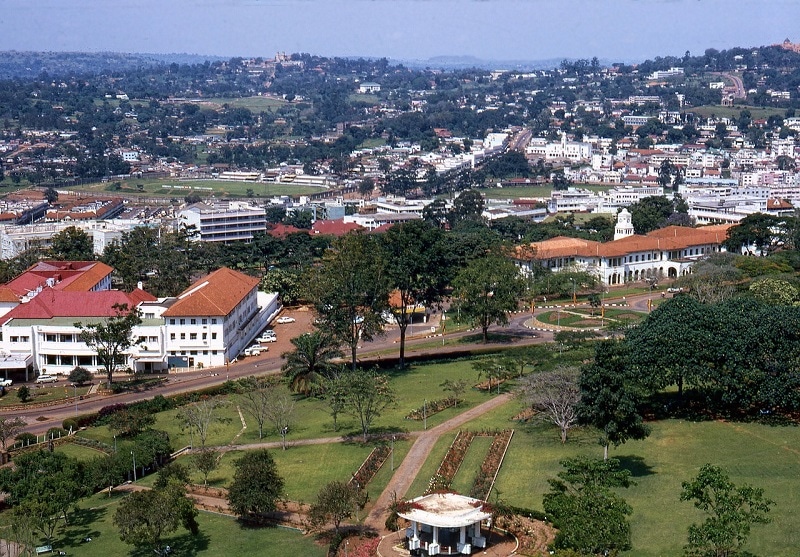
Downtown Kampala can be chaotic and crowded, particularly in the old town around Namirembe and the student area of Makerere. Newer districts to the east such as Kololo are leafier and quieter. To the south, the vast US Embassy forms another locus of expat life, and along the road to Entebbe, the suburban district of Lubowa is home to a diverse community centered on the International School of Uganda.
Entebbe was the capital of British Uganda before Kampala, and as the site of the country’s main international airport it’s still an important hub. It’s quieter than Kampala, and its lakeside resorts make it popular with expats. Kampala is only 45 minutes away along the new expressway.
Jinja proudly declares itself “the source of the Nile,” and this brings some tourism as well as hydroelectric projects. It’s only 80 kilometers east of Kampala, though traffic and poor roads mean it can take a couple of hours to drive there. As a major industrial center it has a high proportion of foreign citizens in its 300,000 population.
Fort Portal is the capital of the western tourist region: a stopping off point for Uganda’s highest mountain, Mt. Rwenzori, Queen Elizabeth National Park and the gorillas of the Bwindi Impenetrable Forest. It’s a small city, but has a lively expat community.
Considerable investment is pouring into the Hoima district, with an oil refinery and a new international airport under construction. This is likely to see the area’s small expat population expand rapidly.
Once you are sure you are moving to Uganda, there are some things you will need to consider.
Most nationalities require a visa to enter Uganda: the exceptions are other countries in eastern/ southern Africa, and a variety of smaller nations such as Jamaica and Singapore. However, citizens of the US, EU, UK, Australia, New Zealand, and Canada will need to apply in advance. Visas on arrival are not currently available.

Tourist visas are easily obtained, but to live and work in Uganda, you’ll need an “entry permit”. This must be supported by a recognized organization. It is possible to enter on a tourist visa, find a job and secure an entry permit before starting work, but be aware that working on a tourist visa could see you deported from the country.
Unemployment is a serious problem in Uganda, particularly for young people, and of those in work, many are in precarious, low-paid positions. So if you’re not bringing specific, needed skills, you may be adding to the problem rather than helping.
Many expats are posted to Uganda rather than actively choosing it, particularly those working in diplomatic services and multinational corporations. For those looking to move to the country, the main areas of work are tourism, education, and international development (with a burgeoning oil industry now offering opportunities to those with the relevant skills and knowledge).
Jobs in education are predominantly within the international schools sector, and can be found through job fairs, the usual agencies, or by applying directly to the schools.
Working with tourists will usually require experience and some local knowledge. Jobs with NGOs (Non-Governmental Organizations engaged in various areas of development) can be found on websites such as UNjobs and Brighter Monday Uganda.
You’ll need a yellow fever vaccination, and a certificate to prove it, to enter Uganda, even as a tourist. Other vaccinations you might consider (if you haven’t had them already) include Diphtheria, Hepatitis A and B, Polio, and Tetanus.
Check the advice on your government’s website for up to date information.
Imported goods can be very expensive, particularly electronics. Carry as much as you can with you: it’s worth investing in extra luggage to bring all your creature comforts. Items shipped separately might take weeks or months to arrive.
When shipping to Uganda, it is highly recommended to use a local import company. Your employer may be able to recommend an import company. Alternatively you can find a list at Yellow (Uganda Business Directory). Check that the company is registered with the Uganda Revenue Authority (URA) as a clearing agent.
Negotiating the processes of Ugandan customs requires specialist knowledge and personal contacts. Goods brought in by ship will usually land at Mombasa in Kenya, which also is notorious for long and expensive delays.
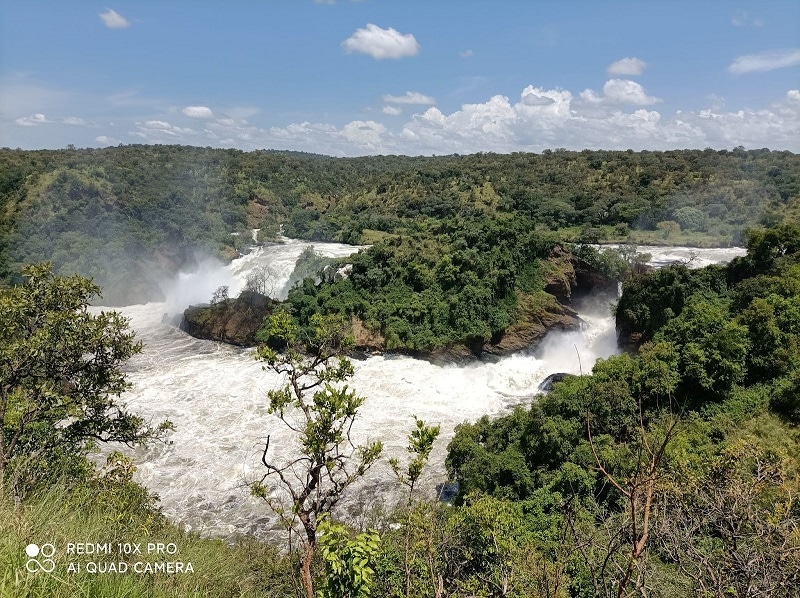
The costs of using a Ugandan company may seem excessive, but trying to manage the process yourself could have you paying many times the value of your goods to receive them, or they may never arrive at all.
Don’t be fooled by reassuring international brands: for example, FedEx in Uganda is run by an independent contractor, and the parent company will do nothing to help if they lose your goods or charge extortionate fees to release them.
Make sure that your goods are officially valued before shipping, otherwise Ugandan customs may assign arbitrary prices to them and tax you accordingly.
Once your visa, job, and location are set, it is time to think about your lifestyle and feeling at home.
The most noticeable aspect of Ugandan culture on first arrival is the pace of life. Hurry is seen as ill-mannered and ignorant. (The significant exception is on the road, where a moment’s hesitation is taken as a sign of weakness).
This relaxed attitude extends to customer service. Don’t expect an assistant in a store to break off their conversation to serve you; they will finish what they’re doing first. If you go for a meal, allow for the fact that someone may have to go out and buy the ingredients before they even start cooking.
Being too busy for someone is a sign of disrespect. Greetings are extended, beginning always with “how are you?”, to which the answer is always “fine”. It’s polite then to ask after their home, their family, their work, and so on. These greetings are ritualistic and often repetitious, and they’re not a request for information; don’t be tempted to respond in any detail. “Wazungu” (foreigners, singular “mzungu”) may be excused for their ill manners but it’s best to comply with local etiquette.
As with east Asian cultures, “face” is important, and takes precedence over strict honesty. Rather than be given bad news, expect to be told what the person you’re talking to thinks you want to hear, or what spares them embarrassment. “Sorry” almost always means “I’m sorry that something bad has happened to you”, it’s rarely an apology or admission of guilt. Open displays of anger are avoided, as they can turn to violence.
Uganda is a deeply religious country. 13% of the population is Muslim, with virtually everyone else being Christian. Roman Catholicism is the largest single denomination, but all major Protestant denominations are well represented. If you live near a mosque, get used to the call to prayer, and wherever you are, expect to hear lively congregations on weekends.
Like many modern African countries, Uganda was created by colonial powers. The British Empire shaped a “protectorate” around the ancient kingdom of Buganda, lumping it together with other neighboring kingdoms and tribal lands without any regard for culture or language. As a result a country roughly the size of the UK speaks over 70 different languages.
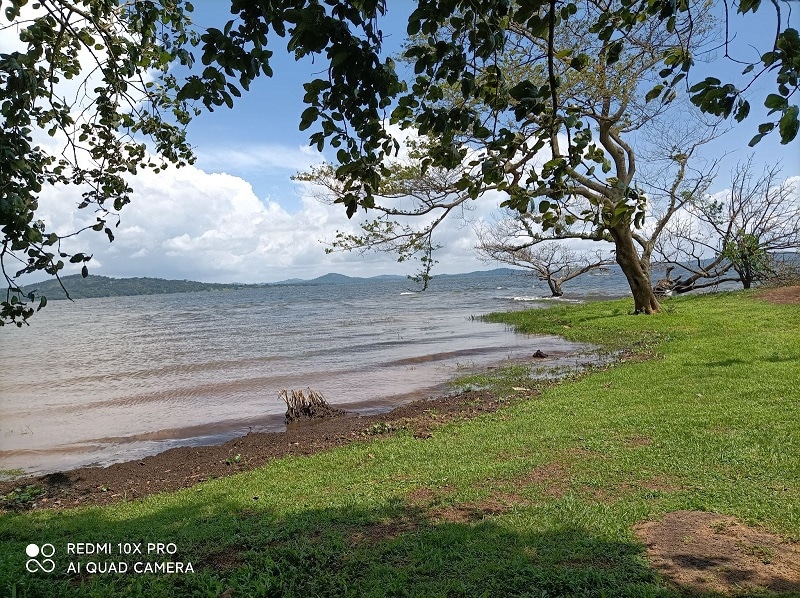
The good news is that virtually everyone speaks English. This ranges from first language fluency to a few mumbled words. English is one of the country’s two official languages, and is used in government, business, and media. Ugandan English is a discrete dialect however, and it can take time to “tune in” to its distinctive pronunciation and vocabulary.
Uganda’s other official language is Swahili, but it is of little practical use to the expat. It’s used as a lingua franca in the police and armed forces, but rarely heard in daily life.
If you live in Kampala or Entebbe, the local language is Luganda, and learning a few words of greeting and courtesy can make you a lot of friends. Remember though that people move to the capital from all across the country, and Kampalans may not speak Luganda at all.
Uganda ranks around the middle when it comes to crime and personal safety in Africa. It is certainly less dangerous than some countries, but poverty and desperation can drive even honest people to theft. Sensible precautions are essential to keep yourself and your family safe.
Violent crime against foreigners is not common, but pickpocketing is rife. Keep valuables in zipped bags or pockets. Most crime is opportunistic, so don’t walk down the street looking at or talking into your phone or it might be snatched.
Walking alone is not advisable, particularly on empty streets and at night. Most well-off Ugandans travel everywhere by car, parking in secure car parks and never on the street.
Concerts and public events can become chaotic late in the evening, so leave early if you sense trouble arising. During election periods, it’s best to stay away from busy areas when possible as tensions run high.
Having a security guard at your residence 24 hours a day is the norm. If you live in an apartment or compound this will be arranged collectively, but anyone with a standalone property will need to hire security. Guards work long hours for little money and are often complicit in burglaries, but security companies are required to pay you compensation if your property is stolen on their watch.
Dogs are helpful against intruders, both as deterrent and as warning. They also chase off monkeys, which can be annoying pests. The USPCA in Kampala has many affectionate and loyal pooches that would be very grateful for a good home.

Telephone fraud is another issue. “Mobile money” is a fast developing form of cashless payment in Uganda but beware if someone calls from the phone company asking for account details, even if it seems genuine.
An invisible danger in water is bilharzia, a parasite endemic to most of Uganda’s lakes, including Lake Victoria. Though rarely fatal, it’s highly unpleasant. Effective treatments are available but it can be hard to diagnose, as symptoms often develop months after ingestion. Don’t drink unpurified water.
Dogs in Uganda are not usually pets: they are either guard dogs or strays, and either way are generally feared. Rabies is endemic. If you are bitten by a dog, bat, or any other mammal, get a rabies shot immediately. By the time symptoms appear it’s too late.
Mosquitoes are of course a major problem, but expats often give up the losing fight to keep them off with repellent and learn to live with them. Make sure anything dried outside is thoroughly ironed–fruit flies lay their eggs in wet fabric, and their larvae are parasitic.
The currency is the Ugandan shilling (UGX). It’s relatively stable, and there are no restrictions on exchanging for foreign currencies. However transferring money into Uganda can be tricky, as PayPal does not operate in Uganda.
Opening a bank account in Uganda is easy, though you should allow plenty of time as queues are usually long and service is unhurried. All you need is your passport and evidence that you are legally resident in the country (residence permit or TIN, see below).
Bank cards are mainly used for withdrawing cash from ATMs, and many outlets will not accept card payments. Cash is still king. “Mobile money” is becoming a popular option with Ugandans, and it’s worth having some money on your phone, particularly for paying utility bills.
The Uganda Revenue Authority (URA) is a dominant presence in the country. Taxes are high, despite the generally low wages (average salary is less than USD 700 per month, with many earning around 5 dollars a day).
Income taxes start at 10 percent for income over UGX 2,820,000 (USD 750), and reach the higher rate of 40 percent at UGX 120,000,000 (USD 30,000).
By comparison, to pay the highest rate of 37 percent in the US, you need to be earning over half a million dollars. An annual payment for infrastructure may leave you wondering where all that money goes, but there is little transparency and not much scope for questioning the URA’s decisions.
To work, you will need a Tax Identification Number (TIN), which is used in many non-tax related situations as evidence that you are a resident in Uganda. The URA website claims to have information on how to apply, but like much else on their impressive-looking website, the link is broken. You can download the form (it’s listed under “Registration Forms”). Your employer should be able to help you.
Renting in Uganda is relatively cheap. A modern furnished two-bedroom apartment will set you back UGX 600,000 to 1,000,000 (USD 160 to 260), and a three bedroom house with garden in the suburbs typically costs UGX 2-5 million (USD 520 – 1300).
You can find rental properties through estate agents, though many landlords find tenants through word of mouth or by posting fliers on notice boards in malls and supermarkets. Local listings websites such as jiji.ug are another good place to look, though be careful as landlords will sometimes list a monthly rent which subsequently turns out to be daily.
Note: When renting, check the property carefully. Find out whether it’s near a noisy church or mosque. Bear in mind you might need a room for your security guard/gardener: these are, uncomfortably, known as “boy’s quarters.”
There are two mobile phone networks, Airtel and MTN. Find out which offers the best coverage in the area or choose the same network as the numbers you will call most often. 4G is now widespread, and Kampala was announced to be one of the first African cities to trial 5G, although there is no sign of it at the time of writing.
To buy a SIM card you’ll need your passport; each passport can only be linked to a maximum of two numbers. If your SIM is lost or stolen you need to report it to the police and get a receipt from them before you can replace it.
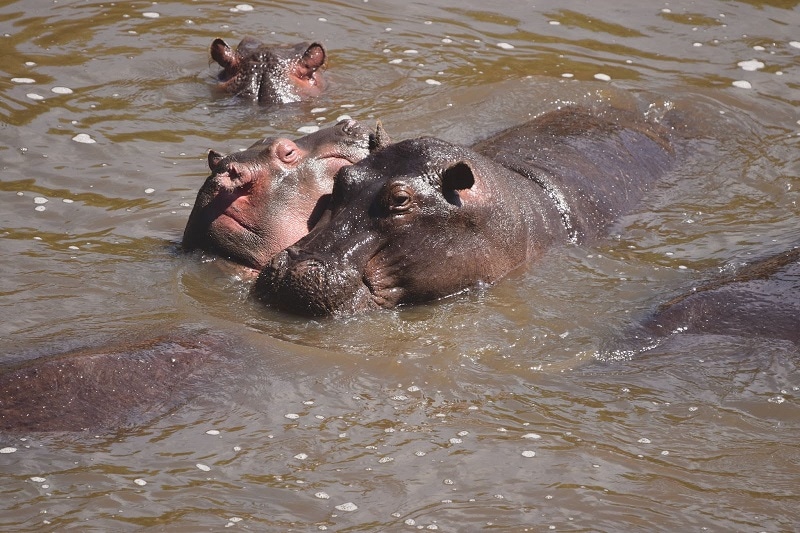
Home internet is usually delivered by microwave radio, although broadband fiber is increasingly available in urban areas. Service can be erratic, and many websites are banned by the government. A Virtual Private Network (VPN) can help bypass these restrictions.
There is essentially no postal service in Uganda, and most buildings don’t really have addresses. If you need anything sent to you, DHL is the most reliable courier service (FedEx is emphatically not recommended). You may need to pick up your package from the local DHL agent, or they may be able to send it to you by boda boda (see below).
Getting around Uganda can be challenging. Traffic and roads can be chaotic and intense.
Public transport options are limited. The train line into Kenya is being rebuilt to modern standards and will be a substantial boost to both countries if it’s completed and brought into operation.
Private coaches run between major cities, and within urban areas there are vehicles known as “taxis” but which are actually mini buses running regular routes. Competition between them is fierce and drivers often take considerable risks to gain a minute or two advantage. A ride on one is a great way to get a taste of local life, but they’re not generally used by expats.
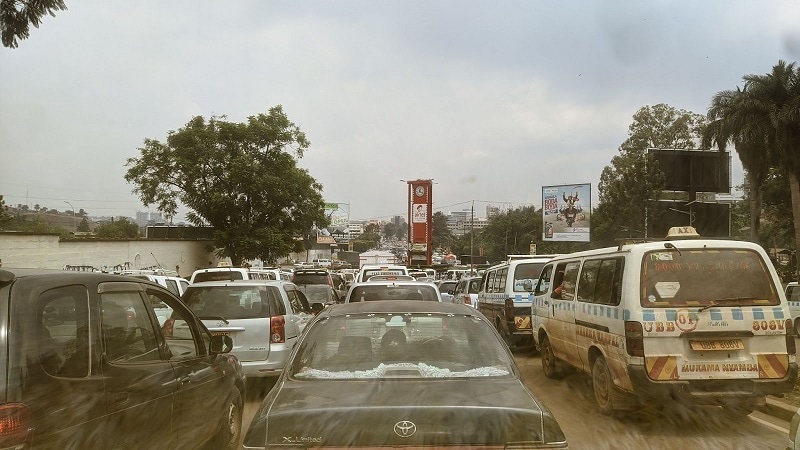
More traditional taxicabs can be found in Kampala, but they’re rare. Uber is relatively new in Uganda and provision is patchy: drivers will turn down a job if you’re not going in the direction they want to go, and they may ask for a payment upfront so they can buy gas for the journey.
The lifeblood of Ugandan cities is the motorbike. Independent motorcyclists for hire known locally as “boda bodas” are plentiful and cheap, though a trip through city traffic can be a hair-raising experience, and accidents are commonplace. SafeBoda offers riders with helmets for themselves and their passengers, and can be spotted by their orange hi-vis jackets with the rider’s name.
Most expats prefer to hire a driver, either per journey or (if budget permits) on a full-time basis. Owning a car is a virtual necessity if you expect to travel around or commute.
Health insurance is strongly recommended for anyone living in Uganda. Although primary healthcare is usually good and cheap, any sort of specialist treatment usually means traveling to a different country.
If you need to be airlifted to South Africa for a lifesaving intervention, the cost can be substantial.
As in many developing countries, Ugandans place a high value on education as a route out of poverty. Kampala alone has eleven universities, although half of all undergraduates study at Makerere University, the country’s oldest and most prestigious college.
For families with children, international schools are mainly centered in Kampala, with limited choice elsewhere. The International School of Uganda, founded in 1967 as Lincoln International School, offers K-12 education based on the International Baccalaureate and the US high school system, and is the first choice of many expats, though fees are steep.
Life is all about eating, drinking, and exciting experiences. So what can you expect to do for pleasure in Uganda?
Ask a Ugandan what they are proud of about their country and they will often talk about its fruit. Uganda is mostly lush and fertile, and avocados are not a luxury here. Uganda’s main export is coffee, and fresh, locally grown “joe” is a treat. Tea is also grown in the west of the country, but that sold locally caters to local tastes and is best drunk spiced and milky, as “African tea”.
Ugandan cuisine is mostly bland. Local staples are posho (maize porridge, also known as ugali), beans, and matoke (mashed green bananas). Restaurants across the country generally offer the same menu: fried or grilled fish, roast or barbecued chicken, burgers, and goat meat, always with French fries (known as chips) or rice.
The Indian influence on Ugandan food is apparent. Chapatis are popular, particularly in the iconic street food known as “rolex”: omelet, onion, and tomato rolled up in a chapati.
Most large towns have a decent Indian restaurant or two, but Chinese food bears little resemblance to the real thing. Kampala has some authentic restaurants: Chinese, Japanese, and Ethiopian, with high quality European cuisine at La Brasserie Belge. Pizzas vary widely in quality. McDonalds has no presence but KFC is spreading rapidly.
Groceries at the supermarket cost not much less than in western countries, with imported goods such as breakfast cereals costing double. You can save money by shopping at markets where the locals go to buy food, although a diet of posho and beans will test the patience of the most frugal palate.
Costs of typical groceries
| Groceries | Cost (UGX) | Cost (USD) |
| Liter of milk | 3000 | 0.80 |
| 12 eggs | 8500 | 2.10 |
| Bar of chocolate | 7500 | 1.90 |
| Jar of pasta sauce | 25000 | 6.25 |
| Bottle of local beer | 3000 | 0.80 |
| Box of cornflakes (450g) | 16000 | 4.00 |
Imported goods can mostly be found in the upscale supermarkets Carrefour and Quality. Millennium stocks a wide range of herbs and spices, as well as Indian food, and the cheekily named “Tesco” at Forest Mall has imported Chinese products. Senana Shopping Centre is an Aladdin’s cave with goods of all kinds.
Clothing choices are more limited. South African chain Woolworth, not to be confused with the department store, has essentials at reasonable prices, but designer brands, or even familiar names such as H&M and Gap simply aren’t available.
The principal online vendor is called Jumia, though if you’re used to the choice and variety of Amazon or AliExpress, you may be disappointed by what’s on offer. Many items listed have to be imported, and it’s possible to get products from UK Amazon at a cheaper price by using an import/export company such as Salabed.
One of the great advantages of living in Uganda is that experiences which for others are expensive “once in a lifetime” adventures are easily accessible. Queen Elizabeth National Park is the largest safari site, though Murchison Falls has better roads. Wild chimps can be easily seen in Budongo Forest, but the trek to see gorillas is more grueling, and children must be at least 15 to take part.

Uganda’s extensive nature reserves are home to many species, including lions, leopards, giraffes, elephants, gorillas, and chimpanzees. However it’s also important to be aware of the wildlife you might encounter elsewhere.
You can easily take paper in group or private safaris on the weekend, or take longer and stay in one of the beautiful national parks of Uganda like Queen Elizabeth national park, Kidepo valley national park, Lake Mburo national park, or Murchison Falls National park. There are reputable companies like Love Uganda Safaris and Achieve Global Safaris who can work out a custom itinerary for you on request.

Despite their cuddly reputation, hippopotamuses are the most dangerous large animal in Africa. They are fiercely territorial, and will attack humans that they consider to be encroaching. Don’t swim in any waters where hippos are known to breed; even boat trips can be hazardous. Crocodiles are another risk, though less likely to attack and more easily avoided than hippos.
Urban activities are more limited. Uganda is still recovering from lockdowns, which took a severe toll on nightlife. The challenges of getting around also place restrictions on what’s available; getting out of downtown Kampala on a Saturday night can take a couple of hours by car. For this reason social activities tend to be very localized.
There’s a thriving music scene, though gigs are usually outdoor mini-festivals, where foreigners are sometimes seen as targets for pickpocketing or aggression. Touring pop and rock acts rarely come to Uganda however, and classical music is virtually non-existent. Art galleries tend to be mainly focused on selling to tourists, though Afriart in Kampala showcases original work, and Maridadi has some good paintings for sale.
Cinemas can be found at several malls, and Kampala’s first go-karting track was about to open at the time of writing. Makindye Country Club is popular with expats, though membership is pricey: it has a swimming pool and tennis courts, and hosts a bi-monthly quiz night. Sporting activities in Kampala and Entebbe are usually to be found at the lakeside resorts, where horse riding is offered. Serena Resort has a golf course, and there’s another in the city center. Gyms are widespread, though the quality of the equipment varies.
Football (soccer) is the most popular spectator sport, and there are clubs all across the country. International matches take place at the Mandela National Stadium to the east of Kampala, and the city also hosts international rugby and cricket matches to a high standard. The Lugogo Cricket Ground has tennis courts which can be hired, and offers lessons.
It’s not only people from western countries who might experience culture shock from living in Uganda. If your previous expat experiences have been in Asia, then East Africa will require some adjustment. But travel is all about learning, and there is much to learn in Uganda, as well as much to enjoy: the open skies, the clean air, the closeness to nature. If you can open your mind, you might discover why so many people fall in love with Uganda and never leave.
Find common topics that will help you overcome the challenges of living, working, retiring, and starting businesses in Uganda.
When relocating to Uganda, shipping is an important consideration. You must consider how long you plan to stay and whether it is worth the expense … Read more
Sir Winston Churchil dubbed Uganda “the Pearl of Africa,” and Ugandans are understandably proud of their country: its natural beauties, its rich wildlife, its fertile … Read more